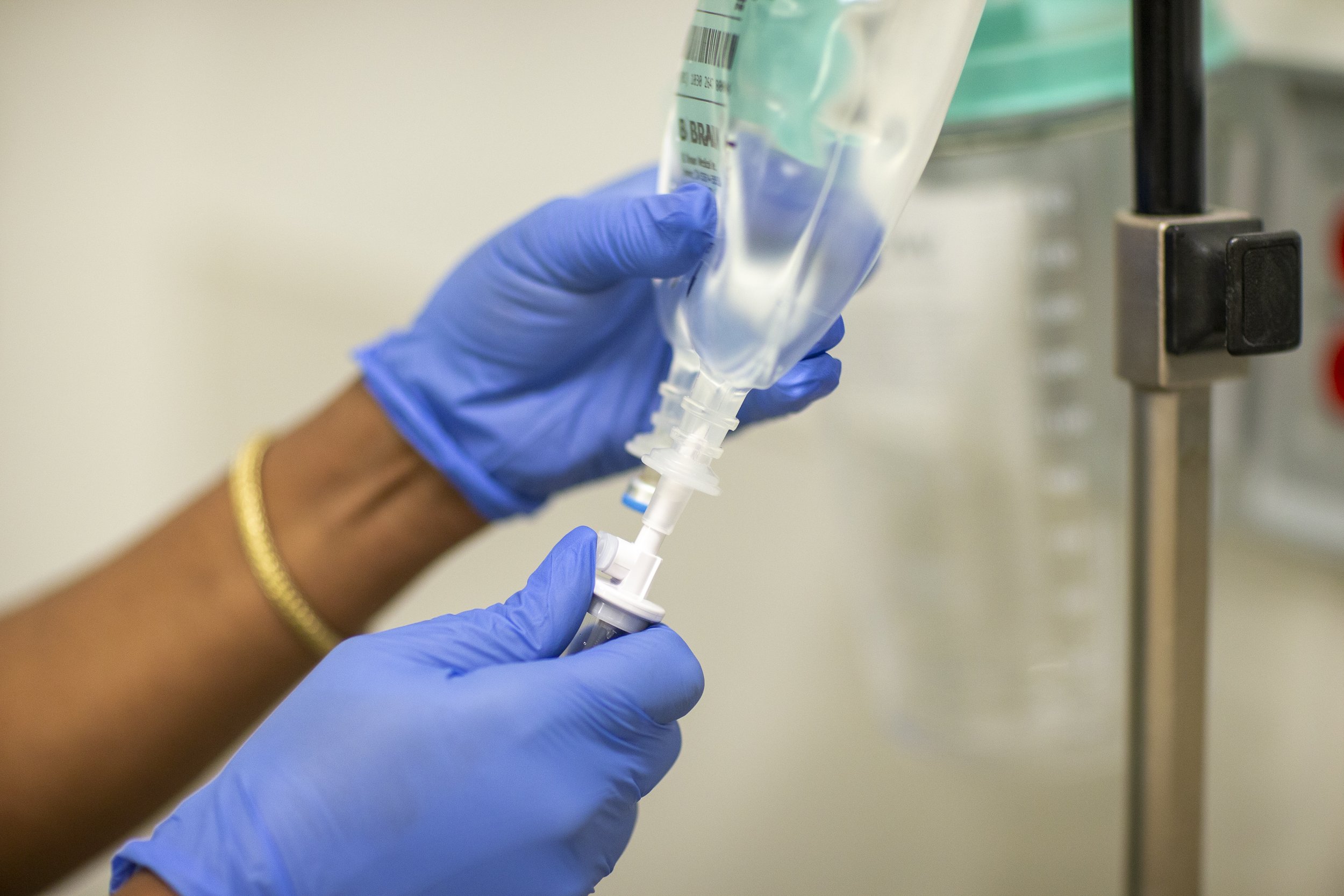When Medicine Helps but also Hurts: Biologic Drugs’ Side Effects
By Maria Mutka from NC, USA
The last thing out of the million concerns swirling around my mind while administering my newly prescribed biologic drug was the worry that I might have extremely uncomfortable and visible symptoms from my medication. Especially not when it was about a month and a half to two months after first injecting the medication when I noticed my first symptom: my hair falling out more than usual.
I dismissed my hair falling out as a potential side effect of the flare that I had had earlier that year which led to the medication change. I had gone from mesalamine to prednisone to budesonide treatments over a period of months, all to no avail. It was the second semester of my first year of college, and all I wanted was a little bit of stability while I settled into college life. Instead, I was occupying the one private bathroom in my dorm constantly or running as quietly as possible to the public bathroom on my floor in the middle of the night.
I had doubts at the beginning of the school year about whether college could be viable for me. I was pleasantly surprised during my first semester when my symptoms quelled, and I made good grades and new friends. I rode that high into my second semester feeling like I had things relatively under control. That all came crashing down very quickly.
When my gastroenterologist prescribed me a biologic drug, it was nerve-wracking to hear the potential side effects and impact the drug could have on my body, particularly my immune system. At that point, however, I was ready to try anything to get back to a relatively “normal” baseline. After my first few injections, I felt relieved to notice that my symptoms were calming down.
While I was feeling better, I started to notice clumps of hair appearing on the floor or in the shower. It was easy enough to dismiss that. I had summer classes to focus on and my hair was the least of my worries. Then I noticed some sores and psoriatic plaques on my scalp that were irritating and uncomfortable, but nothing I still couldn’t ignore. When I thought about it more, however, it was a headscratcher. I hadn’t changed detergents or personal care products, so if I was having an allergic reaction the cause was not obvious.
Then came the symptom that was a bit harder to ignore: small abscesses appearing on different areas of my body. I went to the university health clinic several times to have them drained. My providers acknowledged that these did not just appear to be in-grown hairs or a reaction to the intense summer heat. There was something more going on.
After getting a couple of these abscesses, I began to think more critically about my new medication. That was the one new factor in my life. My food, personal care products, and surroundings had largely remained the same.
As I returned to college for my sophomore year, I hoped the fall weather would help cool this strange reaction that was taking place in my body. Almost immediately when the semester started, my whole body broke out in a strange, blotchy rash. My eyes were swollen but I had no other symptoms that indicated anaphylaxis such as my throat closing or shortness of breath.
After this last episode, when no provider could come up with an explanation for my odd progression of symptoms, my gastroenterologist took me off the biologic drug I had been taking. Fairly soon after that, things went back to normal. While my gastroenterologist would never say that the biologic drug caused the reaction, and it’s true that there’s no way to definitively establish a correlation between it and my symptoms, I can say that things only got better when I stopped that medication. Now I was back to square one, but at least with the knowledge that the biologic drug I had been on was not going to be the answer.
Most often, side effects or adverse events related to biologic drugs happen much sooner after medication administration than in my case. They typically also feature clearer signs of a reaction such as shortness of breath, chills, redness, itchiness, itchy eyes, or itchy lips. While these symptoms are fairly uncommon, rarer reactions can involve central nervous system disorders, cardiac issues, and Lupus-like syndrome.
There can be a lot of fear built up around biologic drugs, however for many IBD patients they can work wonders. I’m on a different biologic drug now and have experienced the longest period of remission that I’ve ever had in my life. It’s an amazing feeling.
Nonetheless, it is important to be on the lookout for side effects when starting any new medication. It might be easy to dismiss the list of side effects in tiny print on the medication safety sheet or as they are read out to you by a clinician, but it’s critical to be aware of when a medication may be harming rather than helping you. Stay vigilant for the first few weeks and even months of a new medication and keep track of how your body is feeling and reacting. Not every medicine may be right for you, and it’s important to let your provider know if you feel like your medication is negatively impacting your health. Even if you feel like there may not be a better treatment option out there for you, there are likely more options than you think. It is your provider’s job to work with you to find the treatment that best fits your body and your needs.
Source: Side Effects of Biologic Medications - Johns Hopkins (hopkinsarthritis.org)

